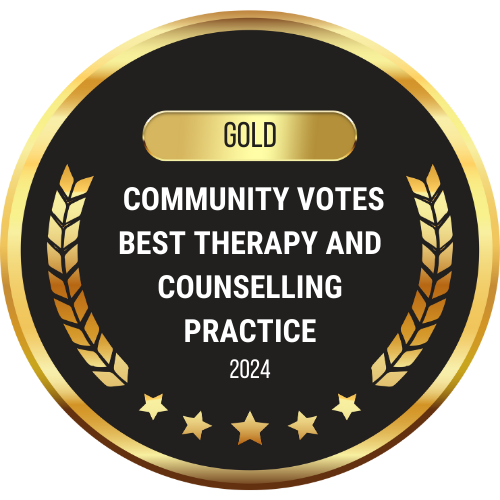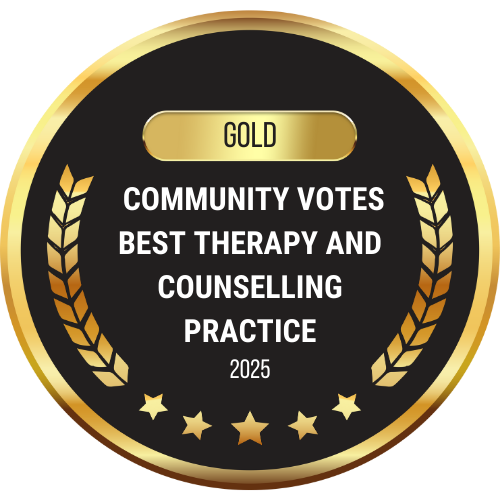*Content trigger warning: In the following article, I will openly talk about suicide and suicidal ideation, including some of my own personal experiences. If you also have experience with suicidal thoughts, continuing to read this post could activate your own past or present thoughts and/or feelings. I encourage you to be honest with yourself about your capacity before continuing to read. If you need support, please reach out to someone in your network that you trust. If you are in crisis (Canada or USA), you can call the suicide crisis helpline at 9-8-8. Please remember this helpline is not entirely confidential and your call may be forwarded to emergency services.
Suicidal ideation is a broad term that encompasses all of the different types of thoughts a person can have regarding suicide. Like most things in the realm of mental health, suicidal ideation is a spectrum. Ranging from a passive wondering; “I wonder what it might be like to die” to something more active such as the desire, motivation, and planning to try to kill yourself. Personally, I have had thoughts at each end of this spectrum and many places in between. It is important to note a distinction between suicidal ideation and an attempt to kill oneself. Research shows that approximately 10% of Americans that experience some type of suicidal ideation will try to end their life (Harmer, 2023).
In the past decade or so, in Canada, there has been a major drive to deconstruct the stigma of suicide. “Let’s Talk” day, popularized by one of Canada’s media giants, has attempted to combat this stigma by raising awareness, and funds, of mental health concerns. Despite this massive media campaign, in my personal experience, most people are still afraid to talk openly about suicide and suicidal thoughts. And there, in fact, lies the rub. Having suicidal thoughts are still seen by many as a weakness in character or mental fortitude, or an incurable illness. What I offer, is a new perspective of suicidal thoughts, one that sees these thoughts as a natural part of living in a society where the privileged and powerful are empowered to attack, abuse, and take advantage of anyone they see fit. North American culture creates competition and division that leaves many people feeling lost, lonely, and/or trapped inside a lifestyle that does not foster the kinds of feelings that a human would want to keep on experiencing. To me, suicidal ideation becomes a very reasonable response to living a life derelict of positive experiences, both internally and externally. Suicidal ideation is common and treating it like a normal part of the human experience can create a space where people in crisis feel comfortable reaching out for support.
Since the pandemic, crisis services have been stretched thin. Now, more than ever, it is important for people to be able to rely on their friends and family for non-judgmental and validating support. Know that it’s okay to talk candidly of wanting to die. It’s okay to have those thoughts, and even entertain them for a time. Having thoughts of suicide does not make you sick or crazy, it means you’re human.
Throughout my nearly 4 decades on earth, I have learned that despite our individual differences, most people have more in common than they have differences. To reframe the stigma around mental health and suicide, we collectively need to take it upon ourselves to be more vulnerable about our own personal experiences. In my most critical times of struggle, I wanted to know that I was not alone in it. I wanted someone to be able to share with someone without feeling like I was broken or an incredible burden that someone else needed to carry.
Suicidal thoughts can come in waves, being more active during different times of my life. When they come, I take it as a sign that I need to take care of myself in one way or another. Sometimes they come when I am busy with work, sometimes they come after speaking with certain people in my life, sometimes they can seemingly out of nowhere. Whatever the situation, what I know for sure is that they don’t make me any less of anything. In fact, talking about my suicidal thoughts with my loved ones has created a closeness of connection that could not have been made any other way.
Those experiencing suicidal thoughts need validation and understanding. This type of compassion can be offered by others or by yourself. Remember that meeting yourself with compassion and love is a skill that can be practiced. Don’t expect to be great at it right away. Wherever you are right now, you are valued, and your thoughts are a temporary experience, they won’t last forever.
Written by Ben Page MA (c) RP-Qualifying
Reference
Harmer B, Lee S, Duong TVH, Saadabadi A. Suicidal Ideation. 2023 Dec 4. In: StatPearls [Internet]. Treasure Island (FL): StatPearls Publishing; 2023 Jan–. PMID: 33351435.











